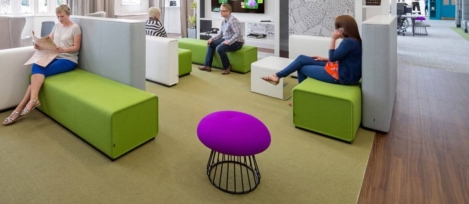June 1, 2015
Association hook-up aims to ‘kick-start the future of facilities management’
 The Chartered Institution of Building Services Engineers (CIBSE) Facilities Management Group has signed new cooperation agreements with the Building Controls Industry Association (BCIA) and the Building Futures Group as it seeks to ‘kick-start the future of facilities management’ in the UK. The three organisations plan to work together to promote best practice. According to CIBSE its agreement with the BCIA will focus on raising awareness of how building controls can help buildings perform better while its agreement with the Building Futures Group will set out to promote best practice in building services management and maintenance. The three groups signed the agreements last week, which will also see them working together on a number of supporting initiatives and joint events. The partner organisations claim the agreements are a response to the rapid pace of change in the sector.
The Chartered Institution of Building Services Engineers (CIBSE) Facilities Management Group has signed new cooperation agreements with the Building Controls Industry Association (BCIA) and the Building Futures Group as it seeks to ‘kick-start the future of facilities management’ in the UK. The three organisations plan to work together to promote best practice. According to CIBSE its agreement with the BCIA will focus on raising awareness of how building controls can help buildings perform better while its agreement with the Building Futures Group will set out to promote best practice in building services management and maintenance. The three groups signed the agreements last week, which will also see them working together on a number of supporting initiatives and joint events. The partner organisations claim the agreements are a response to the rapid pace of change in the sector.





































May 25, 2015
Clerkenwell Design Week explores the links between design and the individual
by Mark Eltringham • Comment, Events, Flooring, Furniture, Workplace design
For a show with such an international perspective there are many aspects of Clerkenwell Design Week that mark it out as a typically British event. There’s the weather, of course, which can vary from day to day between drizzle and bright sunshine, marking the difference between visitors dodging showers and huddling in showrooms or spilling out onto the pavements to drink beer and talk turkey. Then there’s the very idea of Clerkenwell itself, a district in East London historically associated with the arts and crafts movements, dodgy dealings, immigrant artisans and labourers and the sort of denuded former glories that those with the right mindset like to appropriate and reinvent. London may exist as a City State within the UK, but it also provides the beating heart for many nationwide industries. For the UK office interiors industry that heart can be found in Clerkenwell.
(more…)